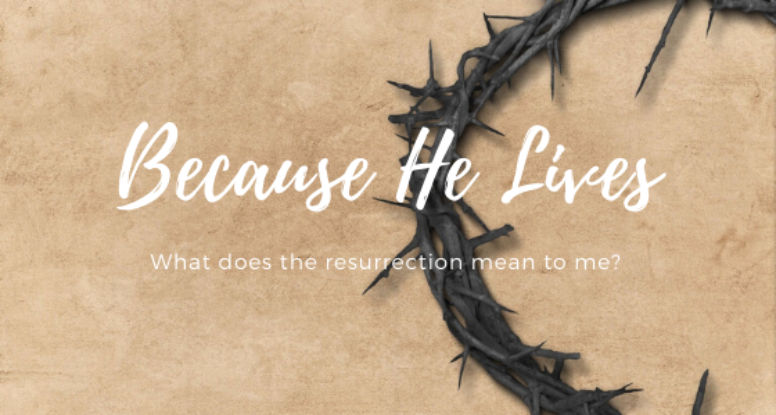I accepted Christ as my personal saviour many years ago. On the day I made the commitment I was invited to choose a song for the congregation to sing. I chose one of my all time favourite hymns Because He Lives.
But seek first the kingdom of God and his righteousness, and all these things will be added to you. – Matthew 6:33
I grew up on this verse. It was referenced in the children’s songs at Sabbath School, the Memory Verses at Pathfinders and frequently brought up throughout the week during my school’s Bible classes. I think I even heard my father quote it, which is a (very) rare occurrence.
Now, I mean to take nothing away from this verse, but I always struggled with it. Maybe it was because heaven, the Kingdom of God, was a very abstract thing to me. I couldn’t, and if I’m honest, still can’t really imagine it.
by: Ben
I seem to come across a lot of new learning at seminars these days. Come to think of it, I guess that’s what the seminars are for! I guess what really strikes me are the insights these seminars give me beyond my immediate career. Last time I wrote about the ‘Matthew Effect’ a term to describe a phenomenon in education taken from Jesus’ Parable of the Talents. I recently came across another idea that put me in mind of my Christian walk through my teen years.
Growing up in a Christian home, going to a Christian school and attending church every weekend I had some beliefs and behaviours that were pretty well worn in. One of these beliefs was that belief is more important than actions. Put simply I had a very narrow view of verses in the Bible such us ‘for all have sinned and fall short of the glory of God, and are justified by his grace as a gift, through the redemption that is in Christ Jesus,’ – Romans 3:23-24. The idea that I am a sinner and nothing can change that – but I shouldn’t worry too much because God will save me anyway. Of course, that’s a very simplistic view, but nonetheless, one I held.
by: Ben
I have recently engaged in a professional learning series that focussed on teaching literacy. During these workshops I was introduced to the ‘Matthew Effect’. I had not heard of this ‘effect’ before but realised I was familiar with its premise – ‘The rich get richer and the poor get poorer’. I had always thought this aphorism was used in the context of capitalism and the inevitable inequality of the free market. I was therefore surprised when the presenters referenced Matthew 25:29 as the source for this quote! Having an interest in the Gospels I looked up the reference when I arrived home.
by: Ben
A few days ago, I was invited to attend a lecture hosted by The University of Melbourne Alumni (as a guest; I am not an alumni). I was reluctant at first because it would be presented by a professor from the School of Physics.
by: Ben
While browsing the news this week I came across some sad news. Tam, one of the last remaining Sumatran Rhinos, has died. I guess it’s not really up there with some of the really terrible stuff in the news but it is symptomatic of how humans, as a whole, are treating the earth.
by: Ben
Sometimes I can be a stickler for getting things right. When I have a disagreement with someone, usually about something incredibly unimportant, I have to find out who is right. Perhaps it’s ego or perhaps it’s… No, I guess it is ego.
Upon a recent viewing of a Marvel Cinematic Universe movie I was sure about the origin of a particular object while my viewing companion objected to my opinion (fact, by my judgement). I had to turn to Google to find out who had it right.
Several years ago I had a similar experience with the Bible. I had a study Bible that suggested very strange things in the notes between chapters. Mostly helpful hints on interpretation – but I felt it went too far when interpreting Jesus’ view on the Sabbath and actually stated something to the effect of ‘remember the weekday and keep it holy’!
This prompted my search to find the ‘right’ version of the Bible. During my search I started with the oldest versions I could find and looked into how they were translated. Now, I am only familiar with the English language, but I do recall reading about some Latin versions of the Bible.. in particular the Vulgate, a Latin translation of the Bible by Jerome who, in 382, sought to correct inaccuracies in the existing Latin version (or versions, I’m not sure).
Now, you may assume that this piece may be about the version of the Bible I settled on, but I recall this story because I recently came across Jerome again earlier this year while reading a book about Wit; sorry to subvert expectation. Now, I mean to cast no aspersions on Jerome, but I found a very interesting anecdote about his translation.
Most people agree that it is not known what specific fruit the ‘forbidden fruit’ in the Garden of Eden was. Many people just refer to it as an apple – because, I always assumed, it was a very common fruit and sprang first to one’s mind. James Geary, author of Wit’s End, reveals that the word for evil in the Vulgate as translated in the story of Adam and Eve’s fall is malum, which is actually also the word for apple (I guess it’s a Latin homophone/homonym). Geary suggests that this prompted Saint Jerome to pick that word to describe what Adam and Eve ate.
As the Vulgate became the translation of choice for the next thousand years or so it was long enough for the apple to receive its undeserved bad rap. Geary goes on to describe several examples of puns in the Bible, even in the original Hebrew, not necessarily translations.
This brought to mind a discussion I heard about whether God has a sense of humour. An interesting notion, I wonder if it’s possible to ascertain an answer through delving into the language of the Bible? And even then, would any humour in the original language transcend the differences in time and culture between ourselves and the original authors?
While I dig out my interlinear Hebrew Bible and Strong’s concordance, I’ll leave you with this parting thought: I have come to the realisation that there may not be one, definitively ‘correct’ version of the English Bible, and proper understanding of much of it takes careful study and prayerful consideration.
by: Ben
With Saint Patrick’s Day just past I was reflecting on a magazine article I read quite some time ago about the the Saint himself, Patrick. Alas I could not find the original article but let me recount some points I remember (that I found rather fascinating at the time).
ואהבת לרעך כמוך
Working day in, day out, with primary school age children frequently brings me to trot out some well worn, yet undeniably true, proverbs, sayings or statements. I say ‘undeniably true’, yet a nine year old can deny anything. What I’m getting at are those statements such as ‘The Golden Rule’.
by: Ben
I work with children. While they are still learning many things, there is one thing children are not short on – a sense of justice. Kids are very quick to pick up on injustices in the playground, classroom and, I dare say, in the home. Most are so egocentric that they may not notice when they commit an injustice against someone else, but they certainly make it known when they are the victim!










